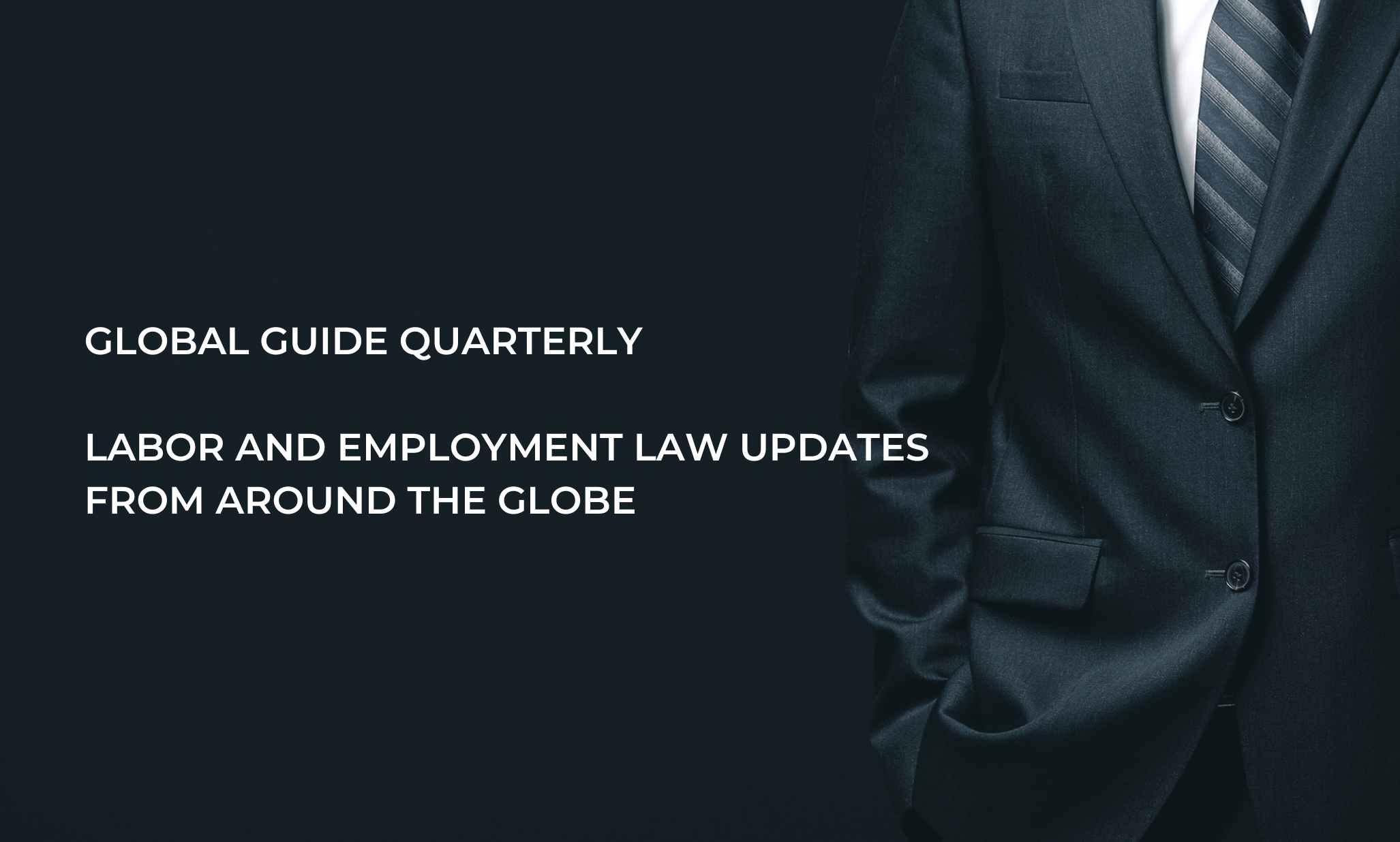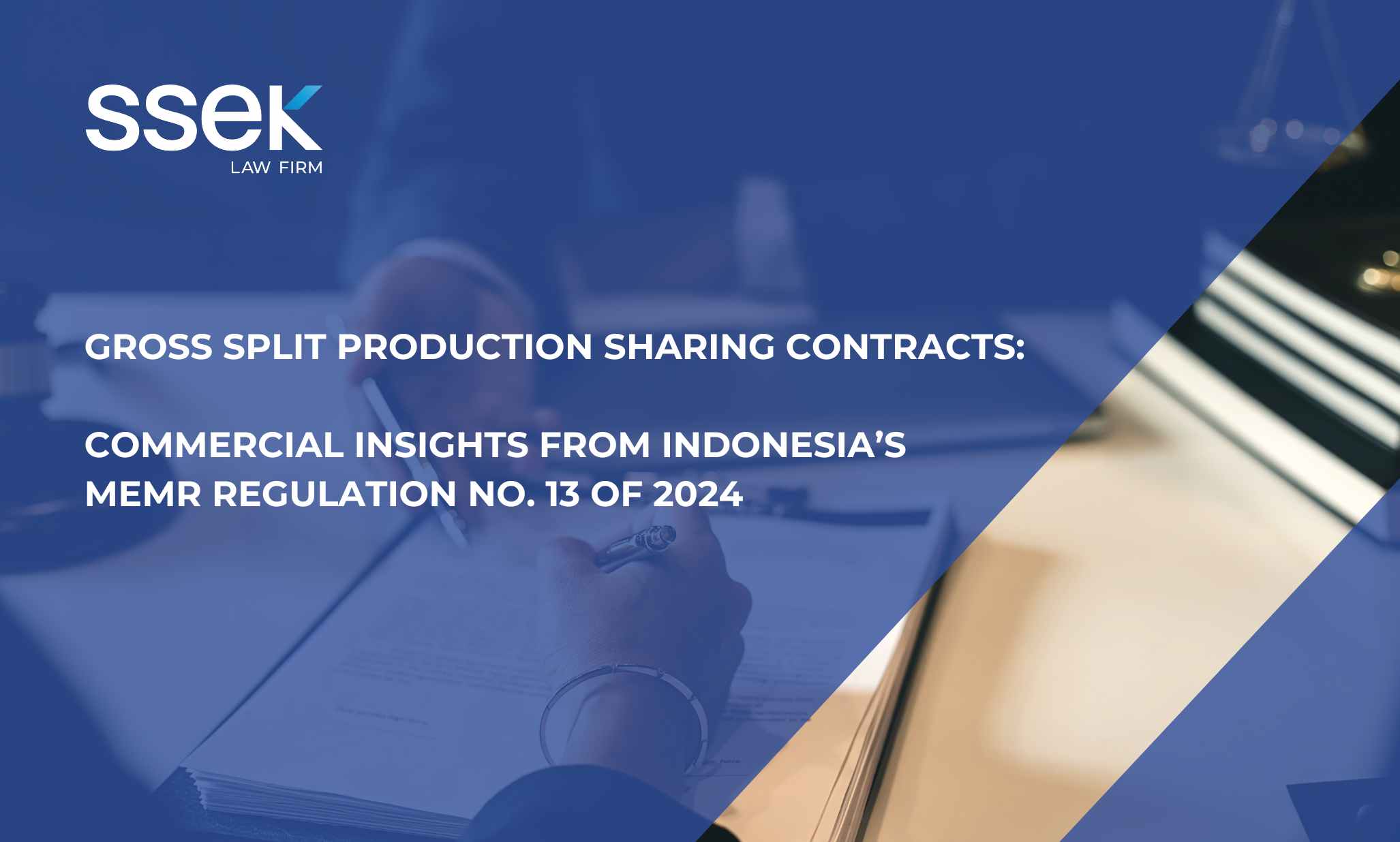

Indonesia's Omnibus Law (Law No. 11 of 2020 on Job Creation), which was issued on November 2, 2020, set new standards for employment terms and conditions by introducing new concepts and rules.
However, the Omnibus Law merely revoked certain provisions under the Labor Law (Law No. 13 of 2003 regarding Labor) without providing replacement provisions to regulate, for example, termination benefit formulas. In other areas, the Omnibus Law did not elaborate on the newly introduced concepts, such as the notice of termination procedure.
It was only with the recent issuance, on February 2, 2021, of several implementing regulations that the new rules and procedures introduced by the Omnibus Law in only very general terms were confirmed and clarified.
These implementing regulations include Government Regulation No. 35 of 2021 regarding Fixed-Term Contract, Outsourcing, Work and Resting Hours, and Termination of Employment ("GR 35"); Government Regulation No. 36 of 2021 regarding Wages ("GR 36"); and Government Regulation No. 37 of 2021 regarding the Implementation of the Job Loss Security Program ("GR 37").
We summarize some of the significant changes confirmed by these three government regulations:
A. GR 35 - Focus on Termination
1. Reduction of termination entitlements: The Government, with the stated intention of stimulating economic growth and attracting foreign investment, in the Omnibus Law removed the health and housing allowance component, which had accounted for 15% of the total Severance Pay and Service Pay, from the Compensation Pay under the Labor Law. Now GR 35 reduces termination entitlements for permanent employees across the board. For example, under GR 35 the entitlements for termination due to poor performance, following the issuance of three warning letters, are reduced from one-time Severance Pay, one-time Service Pay and Compensation Pay, as per the Labor Law, to one-half (0.5) time Severance Pay, one-time Service Pay and Compensation Pay.
2. Notice of termination procedure: The previous regime under the Labor Law put the focus on termination by requiring prior Labor Court approval to terminate employees, which added an additional burden for employers. Under GR 35, the Government has adopted the notice of termination concept, similar to countries throughout much of Asia and common law jurisdictions. The employer can now unilaterally issue a written notice of termination with reason at least 14 working days prior to the planned termination date.
If the employee accepts the termination, the employer must report such termination to the local labor service office. And if the employee does not accept the termination, the employee must submit a written statement rejecting the termination with reason at the latest 7 working days after receiving the notice. If the parties then fail to settle the dispute via a bipartite negotiation, the termination procedure will follow the usual dispute mechanism, namely a tripartite negotiation (normally via mediation by a local government labor official). If the parties still fail to resolve the dispute, either party may initiate Labor Court proceedings.
3. Compensation pay for fixed-term employees: A new entitlement scheme introduced by GR 35 is the provision of compensation pay to employees upon the completion of their fixed-term contract. Such payment is referred to in GR 35 as Compensation. Note that this Compensation is not the same as the Compensation Pay referred to above for permanent employees. There is no similar statutory entitlement under the Labor Law. This Compensation applies to the completion of the initial period of a fixed-term contract prior to any extension thereof, as well as to the completion of any extension of that fixed-term contract.
GR 35 provides the following calculations for these Compensation payments:
| Service Period | Compensation for fixed-term employee |
| Less than a month | 0 |
| 1 month or more but less than 12 months | (service period / 12) x 1 month salary and fixed allowance, if any |
| More than 12 months |
GR 35 also provides that Compensation applies for the early termination of a fixed- term contract. However, GR 35 has created some uncertainty with respect to this issue given that the Labor Law also provides a certain entitlement for the early termination of a fixed-term contract.
Until clarified by further legislation, it appears that there are now two rules governing entitlements for the early termination of a fixed-term contract, which, if applied together, may contradict the stated purpose of the Omnibus Law, which is to create a better environment for the private sector to stimulate the economy.
Note that Compensation does not apply to foreign fixed-term employees.
4. Determination of gross misconduct (or termination due to urgent reasons) and termination entitlement formula: The Labor Law did at one point regulate gross misconduct and its formula for termination entitlements, but in 2004 the relevant clause was struck down by the Constitutional Court. As a result, employers in practice simply copied the stricken clause into their employment contracts, company regulations or collective labor agreements and created their own entitlement formula for gross misconduct termination. GR 35 now stipulates that an employer can terminate an employee for committing a violation with urgent reasons regulated in the employment contract, company regulation or collective labor agreement, with the employee entitled to Compensation Pay and Separation Pay.
5. Streamlining outsourcing rules: The outsourcing rules under the Labor Law were confusing and ambiguous. Previously, outsourcing was divided into "outsourcing of services" and "outsourcing of labor supply," both with different sets of rules. GR 35 eliminates this distinction and revokes the various procedural requirements. The previous restriction that outsourcing was limited to non-core business processes has also been eliminated. The focus of GR 35 is the protection of outsourced employees and the licensing of outsourcing companies.
6. Determination of specific efficiency/redundancy rule: The Labor Law did not have a specific clause on efficiency/redundancy for circumstances of ordinary downsizing of workforce, elimination of job positions, etc. Rather, employers in practice relied on settling a termination due to efficiency/redundancy by using the termination formula under the efficiency clause in the Labor Law, which also required the company to close.
GR 35 now provides two different efficiency clauses, without requiring the company to close. One clause regulates termination due to efficiency as a result of the company experiencing losses, while the other clause regulates termination due to efficiency to avoid the company experiencing losses. The former entitles employees to one-half (0.5) time Severance Pay, one-time Service Pay and Compensation Pay, while the latter entitles employees to one-time Severance Pay, one-time Service Pay and Compensation Pay.
B. GR 36 - Minimum Wage Revamp
The Government has amended the minimum wage rules by eliminating the sectoral minimum wage. Now, the available minimum wage rules are only for regional minimum wage, namely provincial minimum wage and district/city minimum wage. Further, where it was not previously regulated, GR 36 regulates salary on an hourly rate but limited to part-time workers.
GR 36 also provides that small and micro businesses are exempted from the minimum wage requirement, but the agreed salary should meet at a minimum certain data benchmarks as provided by the Government's statistics agency.
C. GR 37 - New Employment Security Program
GR 37 introduces Job Loss Security ("JLS"), a new social security program under the BPJS Employment (BPJS Ketenagakerjaan) social security program. JLS participants are essentially employees who have enrolled in the BPJS Employment and BPJS Health (BPJS Kesehatan) social security programs. Indonesian employees under 54 years old who have enrolled in both BPJS Employment and BPJS Health are automatically enrolled in JLS as of the date GR 37 was issued, i.e., February 2, 2021.
The JLS monthly contribution is 0.46% of the participant\'s monthly salary, with 0.22% of the contribution provided by the Government and the remaining 0.24% taken by reducing the employer's existing contributions to the Work Accident social security program by 0.14% and the Death social security program by 0.10%.
JLS benefits consist of (a) a monthly cash benefit for six months, (b) access to job market information and career counselling and (c) online or offline job training. (April 13, 2021)
This publication is intended for informational purposes only and does not constitute legal advice. Any reliance on the material contained herein is at the user's own risk. All SSEK publications are copyrighted and may not be reproduced without the express written consent of SSEK. The contents of this publication are subject to change pending the issuance of additional legislation.









